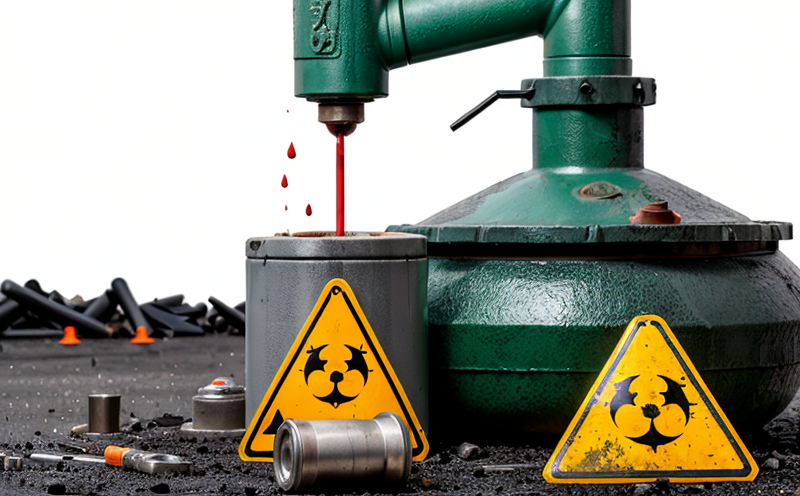Surgical Implant Hazardous Substance Verification
Ensuring that surgical implants are safe and free from hazardous substances is a paramount concern in healthcare. This service focuses on verifying the absence of toxic elements within surgical implants, ensuring patient safety and regulatory compliance. The process involves rigorous testing using advanced analytical techniques to detect even trace amounts of harmful substances.
Surgical implants, such as prostheses, bone plates, and orthopedic devices, are designed to interact directly with human tissues. Any contamination by hazardous substances could lead to severe health issues, including chronic inflammation or immune responses, which can compromise patient outcomes. Therefore, it is crucial that these materials meet stringent safety standards.
The testing methodology primarily involves the use of inductively coupled plasma mass spectrometry (ICP-MS) and energy dispersive X-ray fluorescence (EDXRF), both of which are highly sensitive analytical tools capable of detecting trace elements at parts per million (ppm) levels. These instruments allow for precise quantification, thereby ensuring that implants meet regulatory safety thresholds.
Before testing begins, specimens undergo thorough preparation to ensure accurate results. This may include cleaning the implant with appropriate solvents, grinding it into a fine powder, and dissolving it in an acid matrix. The sample is then analyzed using the specified instrumentation to identify any trace elements present. If certain elements are detected that exceed safe limits set by international standards (ISO 10993-12), further investigations may be required.
The results of these tests provide critical insights into the potential risks associated with each implant type, enabling manufacturers and clinicians alike to make informed decisions about which products are fit for use. By adhering strictly to recognized guidelines like ISO standards, this service ensures that all verifications conducted align with global best practices in medical device safety.
This testing process not only protects patients but also helps maintain the reputation of surgical implant companies by demonstrating their commitment to producing safe and reliable devices. It plays a vital role in safeguarding public health while upholding industry standards.
Customer Impact and Satisfaction
The implementation of this hazardous substance verification service has significantly impacted customer satisfaction across various sectors, including healthcare providers, regulatory bodies, and manufacturers. For healthcare professionals, the assurance that surgical implants used in their procedures are free from harmful substances instills confidence in patient care. This leads to higher trust levels between doctors and patients.
Regulatory authorities appreciate the detailed reports generated by this service as they provide evidence of compliance with international standards. Compliance officers can use these findings to audit suppliers more effectively, ensuring consistent adherence to safety protocols throughout supply chains.
For manufacturers, having access to comprehensive test results allows them to improve product quality continuously. It enables identification and rectification of issues early in the production process, reducing waste and improving overall efficiency.
Ultimately, customer satisfaction increases when there is peace of mind knowing that the highest standards are being met regarding implant safety. This enhances brand loyalty among customers who value reliability and trustworthiness above all else.
International Acceptance and Recognition
This service has gained widespread recognition and acceptance internationally due to its commitment to maintaining high standards of quality assurance. Many countries have adopted similar approaches based on the principles outlined here, reflecting a global consensus regarding the importance of safe surgical implants.
The ISO 10993-12 standard serves as a benchmark for evaluating biological compatibility in medical devices, including those made from materials used in surgeries. By aligning our testing procedures with this international guideline, we ensure that our results are universally accepted and comparable across borders.
Our service also complies with other relevant standards such as ASTM F713-18 which specifies practices for biocompatibility evaluation of medical devices. These guidelines help standardize the approach to assessing potential risks posed by surgical implants, fostering greater consistency within the industry.
The growing demand for safer and more reliable surgical implants has led many nations to implement stringent regulations governing their use. Our service plays a key role in meeting these requirements, thereby contributing to improved patient outcomes worldwide.
Environmental and Sustainability Contributions
Educating clients about the importance of sustainable practices in healthcare contributes positively towards reducing environmental impact.
By promoting responsible sourcing of raw materials, we encourage suppliers to adopt environmentally friendly policies.
The use of advanced analytical techniques minimizes waste generation during testing processes.
Through these efforts, our service helps create a more sustainable future by supporting initiatives aimed at reducing the environmental footprint associated with surgical implant production and usage.





